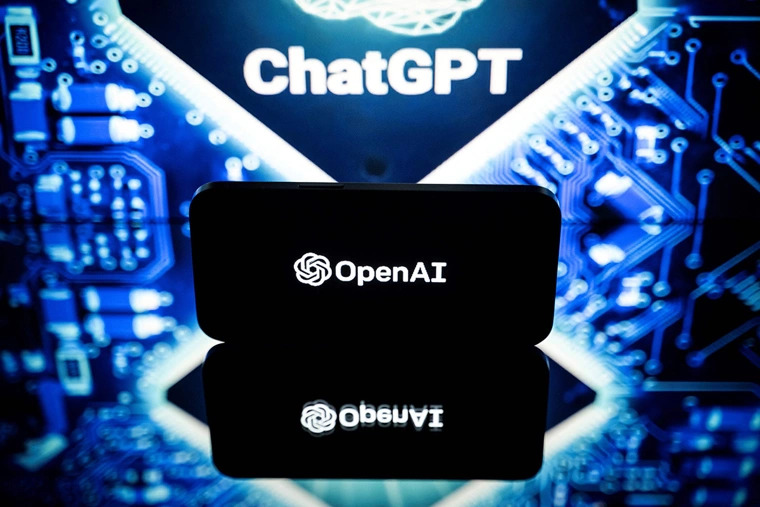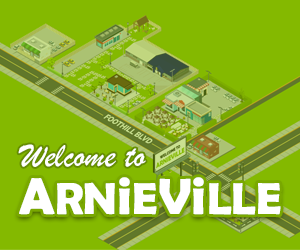“Just because a machine can do something, a Christian needs to have wisdom to know if it should do something,” said Brian Page, acknowledging that while it might sound like strange advice to someone who hasn’t worked with artificial intelligence, it’s key to remember for those who follow Christ as AI technology continues to go mainstream.
Paige, who is vice president and chief information officer at Calvin University in Grand Rapids, Michigan, also teaches in the department of computer science, and says Christians will need to become more heart-focused as AI develops and evolves.
“As the world becomes more complex and automated, we must become more attuned to matters of the heart,” Paige told The Christian Post via email.
He said while advances such as Generative Pre-trained Transformer technology (or what’s known as ChatGPT) might lead to the creation of artificially-created prayers, for example, that doesn’t change the fact that a robot wrote it.
“An AI may be able to write a theologically accurate and even aesthetically beautiful prayer,” he said. “However, if it’s not a prayer from the heart of the participant, it is just words.
Paige likens such AI-induced prayer to using the aid of a global positioning system to find one’s way home.
“Like using a compass as a Wayfinder for hiking or using GPS to get us to a destination when driving, this doesn’t change the nature of the destination, but just assists in arriving without error,” he said.
The conversation over AI has exploded after the technology has seemingly made the leap from the simple task management of Siri to piloting self-flying planes, painting works of art and even managing “moral dilemmas” for AI-driven “driverless” cars.
Last month, a rabbi in New York state even shared an AI-composed sermon with his congregation, only revealing afterward that it was authored by ChatGPT.
But Paige thinks there is an even greater opportunity for AI to transform not only our religious experience, but foundational theological premises, like “where can we worship” or “how do we learn about God” or “where can we experience God’s presence” — provided humans don’t end up worshiping their own creation.
“Technology, when used as an enabler for worship and prayer and theological thinking, changes the environment for how we think about God and has the capacity to expand our theological premise,” he said. “But the concern would be if it becomes a distraction to or, worse, an idol to our true theological foundation.”
In fact, said Paige, that’s one of the ways academic institutions like Calvin University, a private university in the Reformed tradition, can help raise up Christian computer scientists who are both faithful and fluent in the area of AI.
| Also Read: AI-Powered Sermons: Rabbi Embraces ChatGPT, Theologian Warns of ‘Idolatry |
In addition to courses on the basics of machine learning, Paige says the undergraduate computer science curriculum at Calvin challenges students to “understand biblical norms for responsible technology so that they can have a leavening influence in the industry.”
For Paige, AI systems like ChatGPT rightly used as tools by Christians could offer the same shifts to the biblical mandate to care for one another and the world, a model which he labeled “principled pluralism,” one in which followers of Christ enter “into a respectful dialogue within industries and the public sphere to serve the common good, finding common cause with others and nudging AI in a normative direction.”
For example, Paige said AI systems can assist people in need by providing information on social services and support available to them, helping them to access the help they need to improve their lives.
“They can also provide information on health and wellness, answering questions on various medical conditions, or help people grasp complex concepts in an easy-to-understand manner, with implications toward justice, mercy and accessibility,” he said. “Only Christians will have the perspective, ‘How can this be used to further God’s divine purposes in the world?’”
As of now, ChatGPT and other AI technology might not exactly have a worldview that can be described as “Christian” in nature.

According to the Daily Mail, observers, for example, have noticed the chatbot struggles with offering a definition for a woman, describing racism as a more dangerous threat to humanity than nuclear weapons, and apparently signaling support for Democrats over Republicans.
And while it’s not difficult to envision both the conveniences and advances that could be accomplished using AI, Paige also acknowledged that Christians will have to exercise discernment with the technology, particularly when it comes to choosing between taking the “easy path” of AI regurgitation and developing their own critical thinking and writing skills.
That dilemma, said Paige, is inherent not just in AI but “any technology or material object that de-centers our affection for and response to God that reflects our fallen nature and requires God to call us back to Himself.”
“Discernment is not only knowing the difference between right and wrong, but also knowing what is of God and what is not — being attuned to the Holy Spirit in such a way that we are both internally and externally aware of God’s presence and leading,” he said.
“A risk with AI is that we become dull in discernment. That we transfer our trust to the machine for matters of the heart, that we ask it to do work for us, that it becomes an idol, or a false prophet, or even just a distraction.”
He pointed to the distinction of the moral questions in academia centered primarily on cheating or reproducing previously published works, and the discernment to recognize whether AI will act as a less comprehensive source for theological truth.
Such questions, Paige said, can only be answered by humans — at least for now.
“The more sophisticated question is the spiritual one. For instance, is the output of an AI one that, even if factually correct, the best solution or response to the need or question?” he said. “It takes human and even holy discernment to judge this.
“Perhaps in doing a task that a machine/AI can do easier, we are actually learning perseverance, patience or gratitude. Discernment includes knowing where AI is an assistive technology from where it is an easy way out of a hard thing.”



